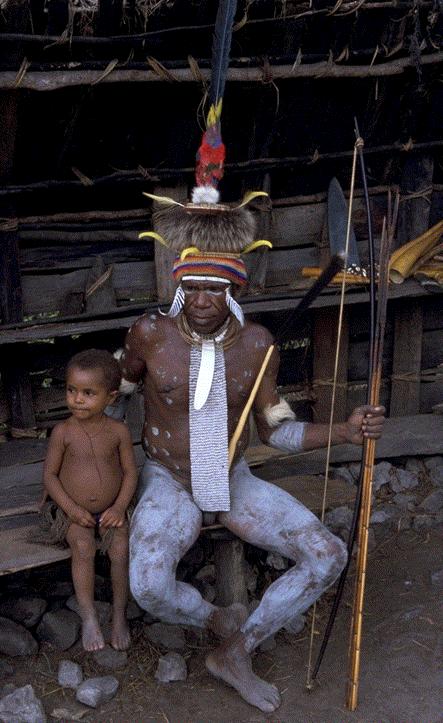|
|
|
NZ
Dialogue Offer Boosts West Papuan Independence It will mark on Dec. 1 the anniversary of the unilateral declaration of independence that indigenous leaders made against the Dutch in 1961, at a time when calls for independence from Indonesia, brewing for many years, are rising. Chris Ballard, a fellow at the Research School of Pacific and Asian Studies at the Australian National University, sees the meeting with Goff as a milestone in the independence campaign by West Papua, which lies at the eastern end of the Indonesian archipelago. ''This is really quite a spectacular breakthrough and is significant in creating the climate of opinion that will put pressure on the Indonesians,'' he said. For Joku, a former newspaper editor in Papua New Guinea, the tentative support from Goff adds to a string of recent diplomatic breakthroughs for the fledgling independence movement that wants to break away from Indonesia. Earlier this year, for the first time in 20 years, West Papuan leaders were accepted as observers at the United Nations. Last month, the Pacific Islands Forum mentioned the conflict in West Papua in its final communique. While the international profile of the West Papuan independence movement is growing, the situation in the troubled province has steadily been deteriorating. Last year Indonesian President Abdurrahman Wahid declared legal the flying of the 'Morning Star' independence flag -- an act that had been ruthlessly repressed by military authorities for decades. In a province with a police force of 6,000 backed by an estimated 4,000 troops with a reputation for human rights abuses, flying the flag has become a flash point between hardliners in the military and independence supporters. Earlier this week Indonesian Security Minister Susilo Bambang Yudhoyono warned that he was prepared to take 'tough action' to prevent protests next week on the 39th anniversary of the 1961 declaration of independence by West Papuan leaders. Anniversary celebrations, Yudhoyono ominously warned, would be treated as ''an act of treason''. It is a warning that human rights observers and independence activists take seriously. Last month, troops shot and killed a number of independence supporters for attempting to fly the flag. In the aftermath of the killings, independence supporters turned on 20 Indonesian migrants, reflecting the social tensions brewing in the province. Indonesian migrants now account for nearly half the province's population. The former Dutch colony, populated by people of Melanesian descent, is growing increasingly resentful and defiant toward the Indonesian military and government. On Dec. 1, 1961, indigenous leaders unilaterally declared independence from the Dutch. Two years later, the Dutch colony was transferred to Indonesia with the condition that an 'act of free choice' be permitted to ascertain the views of the people. Australia, the United Nations, the United States and Indonesia deemed a vote of 1,025 handpicked delegates six year later, who voted for incorporation into Indonesia, to constitute an ''act of free choice''. Even the UN representative to West Papua noted in a report at the time that the ''act of free choice was obviously stage managed from start to finish (Indonesia) exercised at all times a tight control over the population.'' Sam Blay, law professor at the University of Technology of Sydney, argues that the Act of Free Choice was illegal. ''It is beyond doubt that the people of West Papua were denied their right to self determination,'' he said. But while South Pacific nations and New Zealand are concerned about the deteriorating human rights climate in West Papua, Australian Prime Minister John Howard refused to meet with Joku at the Pacific Islands Forum for fear of irritating the Indonesian government. ''I won't be talking to them because it's not appropriate, and it would be contrary to the stance that Australia takes in relation to the sovereignty of Indonesia,'' Howard said. West Papuans are however gaining some support from among Australian parliamentarians. Earlier this month 10 members of parliament, spanning all political parties, formed a group called ''Parliamentarians for West Papua''. In a speech in the Senate, Australian Greens Senator Bob Brown, the group's founder, warned the Australian government that it should learn from its experience with East Timor. ''We should not repeat the mistake of East Timor, where we acceded to the Jakarta military authorities the right to run roughshod over the democratic and political rights of a people,'' Brown told the Senate. Whether the Dec. 1 independence celebrations turn violent hinges on the actions of the military, says Ballard. ''What the military are trying to do is to create trouble and unrest to embarrass Wahid. The anniversary will only be as violent as the military want it to be. I expect there will be some violence and I would be looking for the hand of the military,'' he said. |

